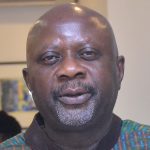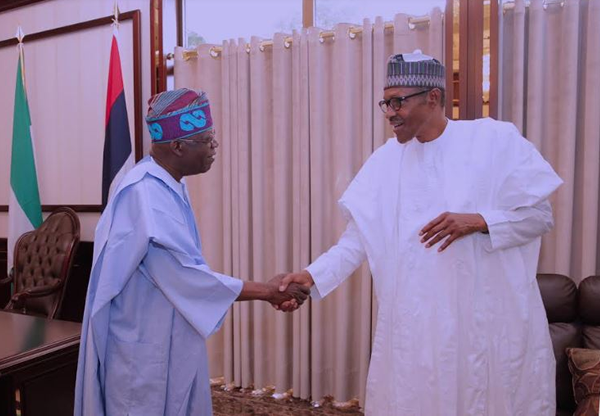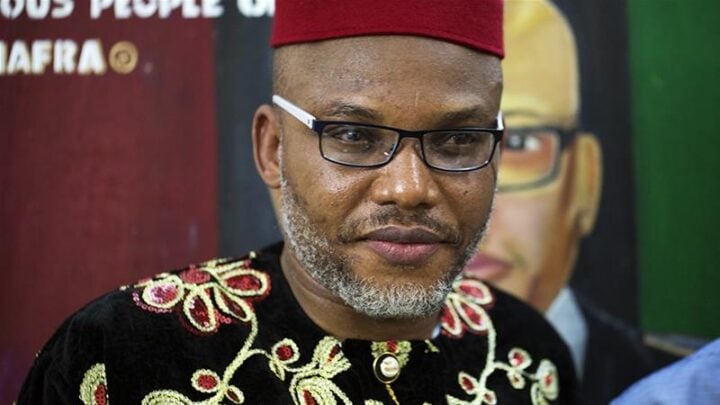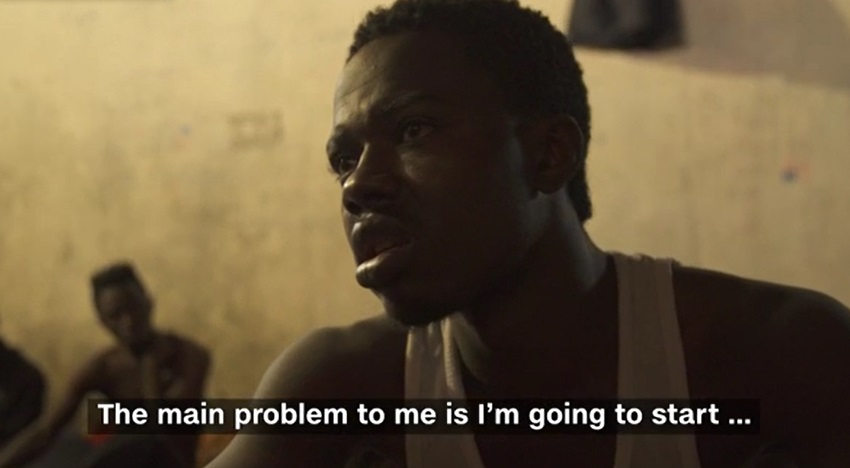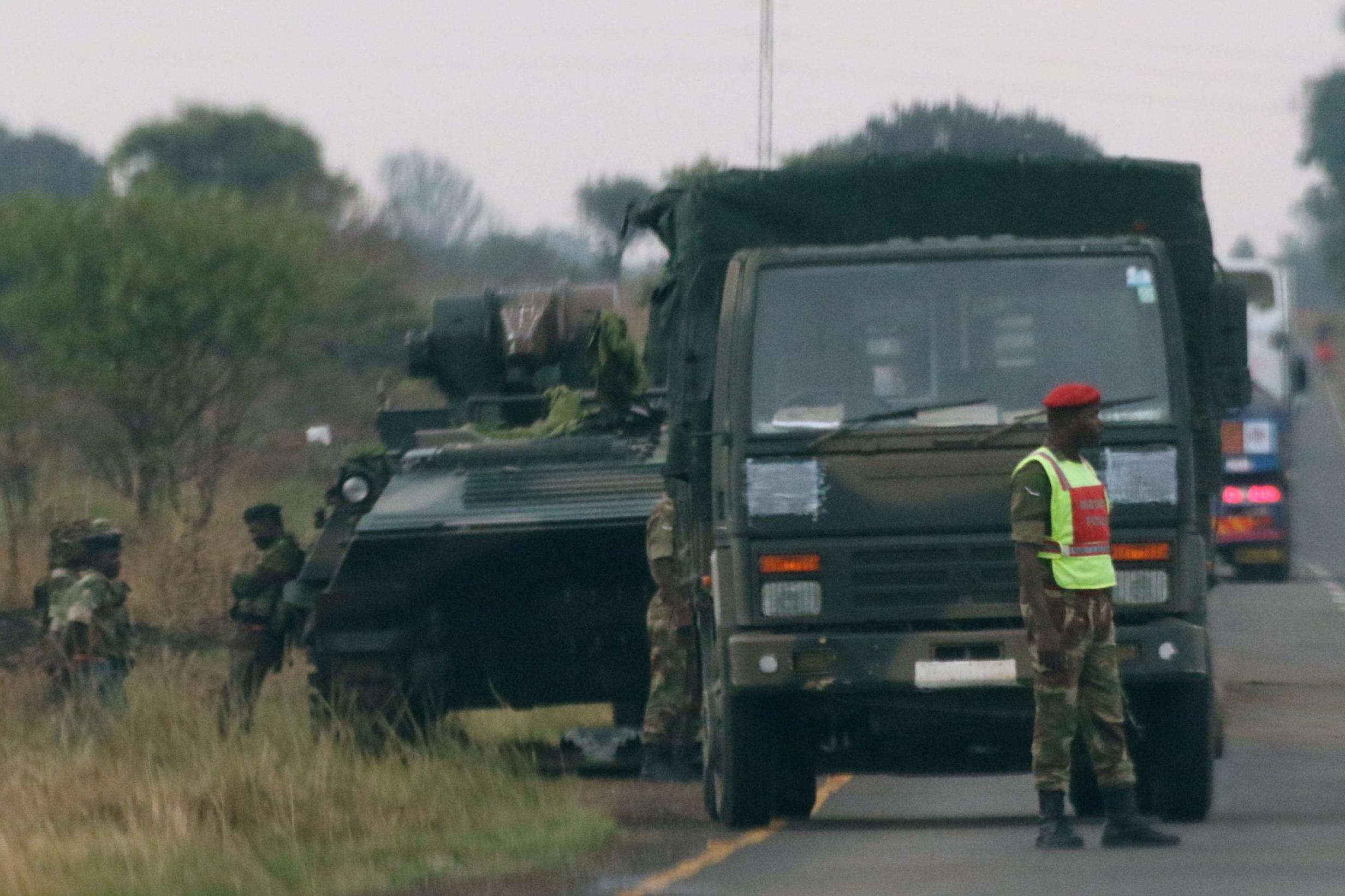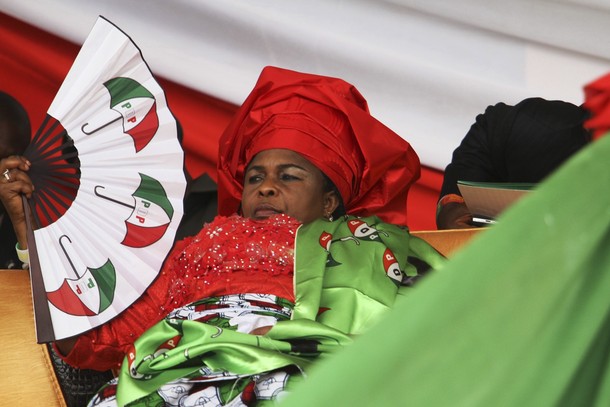As did Festus Adedayo, this writer also cannot proceed with this piece without extending his heartfelt condolence to the National Leader of the All Progressives Congress (APC) Asiwaju Bola Ahmed on the sudden and untimely death of his first son, Jide Tinubu. The pain of this great loss on this political colossus of our time and his family can only be imagined. May God in His infinite mercy grant Jide’s soul eternal rest and give Asiwaju the fortitude to bear this very sad loss.
This piece was inspired by Festus Adedayo, one of Nigeria’s ace columnists and chairman of the Editorial Board of the Nigerian Tribune, who, in the aftermath of the much awaited National Executive Committee (NEC) meeting of the ruling APC at the end of October, wrote a column in The Tribune newspaper and circulated on the social media which he titled “Tinubu, why you must discuss Buhari, 2019.” Adedayo’s own inspiration to write the piece was probably due to the disgust he felt with not only the statement credited to Asiwaju Tinubu after his meeting with President Muhammadu Buhari in preparation for the NEC meeting, but that he was in Abuja for the meeting in the first place.
Asiwaju was reported to have said, among other things (some of which was also reiterated by Adedayo towards the tail end of his piece) that his discussion with President Buhari was “fruitful, productive and it was about the country and leadership as a whole.” Asiwaju was quoted as having “confidence in this president” and that “there is no doubt about that.” He also said that “there are certain things that are unpredictable and those are things that can [lend] themselves to gossip, insinuations and all of that. But once you create leadership and it is functioning, you don’t have to baby sit that leadership unless there is a loss of confidence and I don’t have that.” To make it abundantly clear to Nigerians that the Asiwaju that came to Abuja for the NEC meeting of his party is the same old Jagaban of Borgu who’s never shy of calling a spade by its proper name, Tinubu quipped, “You know me, I’m not known to shy away from speaking my mind and rebelling if it is necessary and taking charge of things that I believe are necessary.” With this declaration by the former Lagos State governor, Adedayo was apparently unconvinced and unsatisfied that Asiwaju is solidly behind Buhari and his administration. He still wanted him to discuss Buhari vis-à-vis the 2019 presidential election and Buhari’s place in it, and also not to forget to make a special reference to the Southwest as to whose 2019 game it should play hence the title of his piece.
It should be pointed out here that Adedayo’s articles have been of particular interest to me ever since we met about a year ago through a mutual friend and found out that he’s also from Akure as yours truly. I have had to commend him after reading some of his articles that he’s an ‘aburo’ that one should be proud of for the rigour he applies to his articles and the high intellectual prowess he displays in marshalling his points through one of the social media platforms we both use to engage each other on matters of public discourse and/or issues that I feel strongly about. But this particular piece leaves a sour taste in my mouth not only because of the insidious manner with which Adedayo tried to drive a wedge (based mostly on conjectures and speculations) between President Buhari and Asiwaju Tinubu, but also his acidic personal opinion (which he reserves the right to have) of the president that he extrapolated to being the feeling of the Southwest, as we shall see presently.
Advertisement
Aside from using the generally perceived (but unsupported by any empirical evidence) deflation of Asiwaju in the present government despite his enormous sacrifice in securing Buhari’s electoral victory in the Southwest geo-political region, Adedayo also dug into some archives to showcase the unstable political relationship between the North and its Western neighbour to advance a pre-determined narrative of which summation is that it would be more tolerable for the lands of Sodom and Gomorrah than Buhari (if he is on the 2019 ballot) in the Southwest. Nothing can be farther from the truth than this.
While this writer admits that he may be questioned as to what gives him the impression that Adedayo may be advancing a “pre-determined narrative” in this piece, and may, therefore, be jumping into a hasty conclusion, it should be pointed out that Adedayo had written a column prior to the one under reference in which he came down so hard on President Buhari that he said in that piece that “the disdain for the Buhari government today are so huge and widespread that they could be likened to a pestilence.” I took him up on this statement by asking him in a private social media chat if he conducted a survey/poll to have arrived at this factually false disposition. His retort was that he “collated the raw statistics of the disdain for Buhari from the media (which is another interesting curiosity) and [his] southwest neighbourhood.” He added that his conclusion was a “representation of the voices in the neighbourhood.” Whatever that means. Now, Adedayo has again opined in this piece that the “southwest had passed a vote of no confidence on Buhari” to which, again, I had asked him (on the social media platform) if there’s any credible evidence to support this clearly insidious assertion. These two articles, which can be said to have been published in quick succession, were enough for me to conclude that a disheartening, pre-determined narrative to paint President Buhari with the most odious brush in the Southwest in preparation for 2019 has emerged.
While one must also admit that Adedayo reserves the right to represent—-in his writings—-the viewpoints of a political tendency in the region which may have vowed never to see anything good in President Buhari by how they present unreal alternative facts to the undiscerning, his ascribing these viewpoints as that of the Southwest must not be left unchallenged. This narrative also does not sit well with the region’s progressive wing, let alone the people who still have acute recollection of the unimaginable desecration of the country, not to talk of the deliberate and unwarranted hardship to which the region was subjected by the previous PDP administration despite the overwhelming support given to Jonathan with their votes in 2011. What is more, there’s no denying the fact of this administration’s unprecedented accomplishments in less than three years in the annals of governance in this country despite the monkey wrenches thrown (and still being thrown) at it both by the “jackals and hyenas” from within the party and other branches of government, not to mention the legion of fantastically corrupt elements (whose loots are still stacked in empty water tanks or burrowed in farmsteads and cemeteries, etc because they may never be caught). Adedayo asserted that the Southwest had made up its mind against Buhari. This is patently false. It has not.
Advertisement
The first ingredient thrown in by Adedayo in preparing his poisoned chalice for the Southwest to drink was the generally perceived cold war between Buhari and Asiwaju in his narrative. Hear him: At some point some months ago, Tinubu began to fight the greatest battle of his political life. It was a battle that had the potentials of determining the compass of his political future and the colour of his politics in years to come. Since his ascendancy on the front row of political discourse as governor of Lagos State in 1999, few battles had this potentiality of taking him out of the front burner as that battle” because the battle was fought “with unseen political forces, presumably domiciled in the Buhari government [which] was far more coordinated, far more calculated and far more corrosive than the previous battles of his political career.” One would have thought that “the greatest battle” of Asiwaju’s “political life” Adedayo made reference to was what happened in September 2011 when the APC National Leader mounted the dock at the Code of Conduct Tribunal for allegedly operating foreign accounts while he served as governor, which, if he had been found guilty, would have almost permanently put paid to his political career. But it is the Buhari administration that Adedayo has in mind. What makes Adedayo to advance this argument that Tinubu fought the “greatest battle of his life” after Buhari’s emergence, talk not of this “unseen political forces” that are “domiciled in the Buhari government” is beyond me.
Not done, Adedayo continued the weaving of his narrative by unearthing an article published two years ago in The Sun newspaper (which, it seems to me, was his second ingredient in his attempt to poison undiscerning minds) in which the author was said to have surreptitiously likened Muhammadu Buhari to Vladimir Putin. Adedayo intimated us with the information that Putin rode to power “on the heads of those who sponsored him into office to sanitize Russia” only for the “drug czars and allied malefactors [who financed him to become] the first casualties of his government.” What a clever way to further drive not only this wedge between the duo, but also a deeply sinister way to call a dog a bad name in order to hang it. If “the sponsors of that piece were burrowing a path for Buhari to tread in decimating Tinubu” (as Adedayo seems to believe) almost immediate the president came to power, one wonders why they have not succeeded by now given the enormous power at Buhari’s disposal.
Whatever flesh or bones left in the graves of Chiefs Obafemi Awolowo and MKO Abiola was also ‘exhumed’ and thrown into this poisoned concoction to further validate the erroneous mindset that the Yoruba will always get their hands burned in any political alliance with the Hausa/Fulani north. Otherwise, one wonders why Adedayo thinks that “it was obvious that history was not in the bespectacled former governor’s favour” when “the calculation to dethrone Goodluck Jonathan and install another president for 2015 became an Asiwaju project.” Truth is that the reference to Awolowo and Abiola in reaching out to the north did not culminate into a government. So, Adedayo cannot conclude on the outcome of something that never happened. But Asiwaju’s attempt succeeded, and some of our “Best Eleven” are in most of the critical ministries and departments in this administration where they’re doing their best in helping Buhari to steer the ship of the state, including his vice president. History would not have forgiven us if the southwest had failed to support Buhari in his fourth attempt given the race to the bottomless perdition the nation was headed under Goodluck Jonathan that even the blind can now see.
Granted that the Southwest (which is the other major partner in the current political alliance that birthed the ruling party) have not been sufficiently compensated with political appointments which are still being held by people of other geo-political regions who did not only use the appurtenances of their various offices to work against the president’s electoral victory, but whose interests are still at variance with the fundamental objectives of this administration. But the region is not being vociferous about this situation because of the fact that the macro-development of the country in the form of devolution of power, restructuring, re-writing a new constitution, among others, are far more important to the region’s progressive political tendency by which the region can determine its socio-economic and political trajectory without interruption from anywhere rather than the micro component of political appointments that only benefits a tiny minority of individuals.
Advertisement
Adedayo’s insistence that Asiwaju discuss Buhari and 2019 despite the former’s public expression of unqualified confidence in the president and his administration was not borne out of any altruistic concern that the Southwest may be conflicted about 2019, but his expectation that the National Leader might declare a “fatwa” on voters of Yoruba extraction who would vote for Buhari if the president should be on the ballot. Otherwise, one wonders why Adedayo would say that the “southwest had passed a vote of no confidence on Buhari.” When did this happen? This egregious viewpoint has such eerily disturbing similarity with Pa Ayo Adebanjo when he declared with a straight face devoid of any conscience as to the ignoble role he and his old Afenifere grandees played in the run-up to the 2015 presidential election that the “Yoruba are now regretting to have voted for Buhari” in that election.
Adedayo’s attempt to impress it on his readers that the Yoruba have already written off Buhari cannot be true neither was this assertion supported by the region’s voting pattern. Yoruba has never been decidedly monolithic in their voting behaviour. It would be recalled that despite the enormous sacrifice Asiwaju made, having thrown in all he had at the 2015 presidential election for APC, it was a close election in Lagos state where Buhari scored 792, 460 votes while Jonathan walked away to the sunset with 632, 327 votes. In terms of local governments in the state APC won 15 local government areas while Jonathan’s PDP had 5.
From the foregoing, it’s unnecessarily for Adedayo to whip up sentiment against Buhari in the region. The people are sophisticated enough to make up their minds about 2019 with or without Asiwaju as well as whether or not Buhari will be in the ballot in the next presidential election. With what he had publicly said during his recent visit to the president, there’s no doubt that Asiwaju had discussed the president and his 2019 ambition, should he choose to contest for re-election (and he should), given this government’s many unprecedented accomplishments which–one is willing to admit–have not been adequately and sufficiently advertised by both the mainstream media and the government itself, which is oftentimes perplexing. Adedayo may have to wait until eternity if he expects Asiwaju to denounce and walk away from a party in which he contributed in no small measure that not only sent packing the now disgraced Jonathan and his PDP government, but a party that gave–for the very first time–the opportunity to the dominant progressive wing of the region’s political spectrum to re-arrange the country’s building blocks for a just, equitable and sustainable society. It’s about time that the other tendency and its supporters that never meant well for Asiwaju in the first place, let alone the region’s political future cease and desist from fanning the embers of unnecessary discords. There’s no sense in crying more than the bereaved. Asiwaju has not suffered any bereavement in the APC except that sad loss of Jide. Again, may his soul rest in perfect peace.
Femi Odere is a media practitioner. He can be reached at [email protected]
Advertisement
Advertisement
Add a comment
